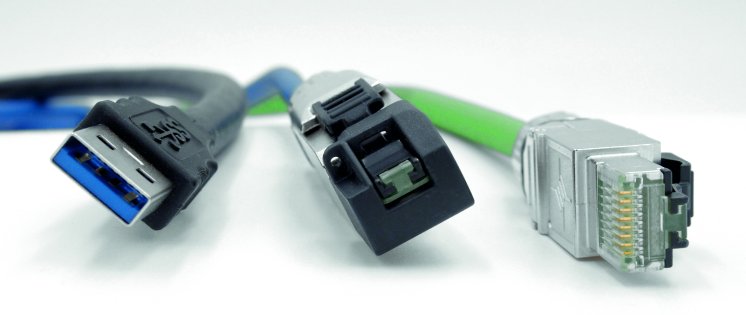When designing USB 3.0 cable there are several challenges to consider for optimum performance and application compatibility. For example, for medical applications USB 3.0 cables should be lightweight, very flexible without memory effect to avoid kinking or craning. In addition, the cable should be autoclavable and flexible enough to be used with hand held devices. In order to ensure these characteristics, the choice of raw materials and manufacturing processes must be precisely coordinated.
High-precision manufacturing processes for cable production
Asymmetries in cable can quickly lead to interferences due to differences in propagation time and signal radiation, while large process tolerances lead to mismatching and reflections. As a consequence, this can lead to transmission losses, distortion of the signal, runtime and data errors and ultimately to reduced image quality.
"The precision of the manufacturing processes and the selection of impedance-relevant materials have a considerable influence on the transmission characteristics", says Marc Gerlatzek, product manager for the medical technology division at SAB Bröckskes GmbH & Co KG. "Through targeted signal integrity engineering and comparison with our documented empirical values from a large number of measurements, we ensure homogeneous transmission values over the entire cable length.
Length-dependent factors such as "voltage drop" or attenuation are limiting factors. Cable cross sections for increased power transmission are just as much a part of the requirement profile as are tolerated outer diameters.
Customer-specific productions possible from 100m
In order to create or customize customer-specific specifications the cable specialist from Viersen rely on close customer contact. Once custom cable solutions are agreed upon cable manufacturers should guarantee exclusive manufacturing to dedicated production lines otherwise knowns as serial production to ensure from prototyping to mass production the manufactured process is controlled with no variances from separate production batches. Custom Cables with production minimums as low as 100 meters can be tested under real time conditions which enhances the experience between customers and SAB specialists therefore addressing improvements and continuous success.



